Post
A catch
Save a catch to start your fishing logbook. You will be able to to share it with the community if yo want!
A fishing trip
Post an ad to go fishing with other fishermen
Save a catch to start your fishing logbook. You will be able to to share it with the community if yo want!
Post an ad to go fishing with other fishermen
Share a thought, a question with the community
My favorite cities
×Join our 250 fishermen and our 2 cofishermen in Little-Salkeld in Cumbria. The fishing forecast is currently 4.1. The most caught fishes here are the bronze bream, the goldfish, the sunbleak fish and the largemouth black bass. Come try the most famous fishing techniques like the surf fishing, tips for jig fishing or cast fishing material for mackerel fish, heavy trolling for pollack or support fishing for bass.
Our fishing forecast of Little Salkeld indicates the best time to go fishing in this city.
The Bronze Bream
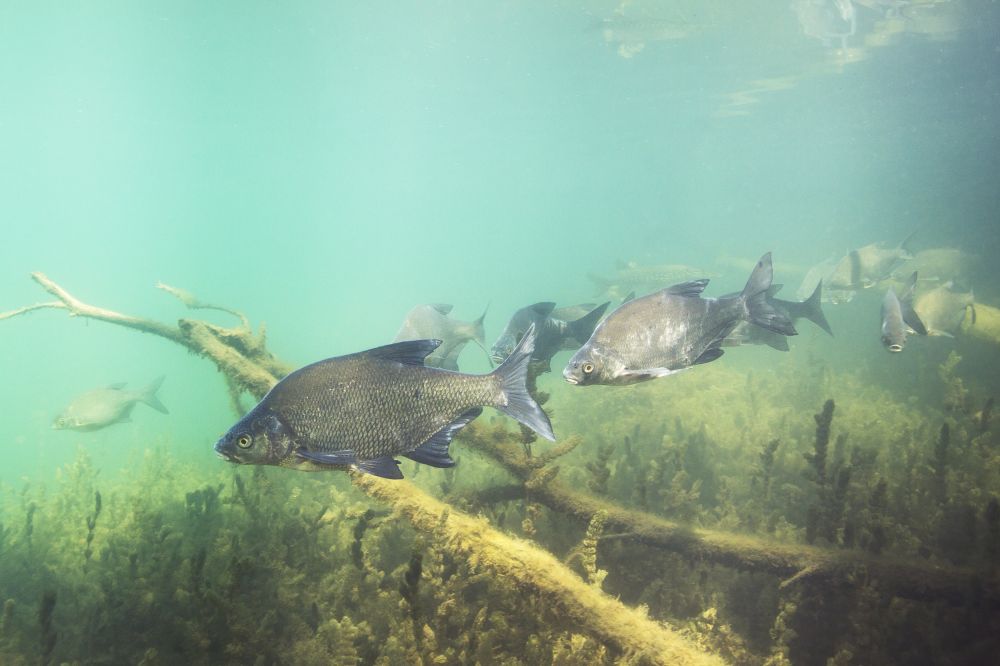
The Bronze bream belongs to the Cyprinidae Family. The current catch size varies between 30 and 50 cm, for a weight of 0.5 and 2.5 kg. Some individuals can reach a maximum height of 80 cm for a weight of 7 kg. It lives between 20 and 25 years. It reproduces between April and June and lay 100,000 to 300,000 eggs. The Bronze Bream can be fished all year round in 2nd category streams and is not hard to catch with the right bait. In Europe, there are 2 or 3 types of bream, 5 species and 2 subspecies. The Bronze bream has a very high and strong body flattened laterally. The bushy back, especially in older individuals, is characteristic of this fish. Its body is covered with large scales and mucus. The Bronze bream has a fairly small eye compared to the size of the muzzle. The mouth is small, oblique, barbless and protractile. The upper jaw protrudes beyond the lower jaw. Teeth are subject to seasonal replacement. The anal fin is very long and has 23-30 soft rays. On the other hand, the dorsal fin is short and inserted behind the pelvic fins. The caudal fin is very indented with the lower lobe longer than the upper lobe.
The Bronze Bream is a famous fish you can catch in Little Salkeld.The Goldfish
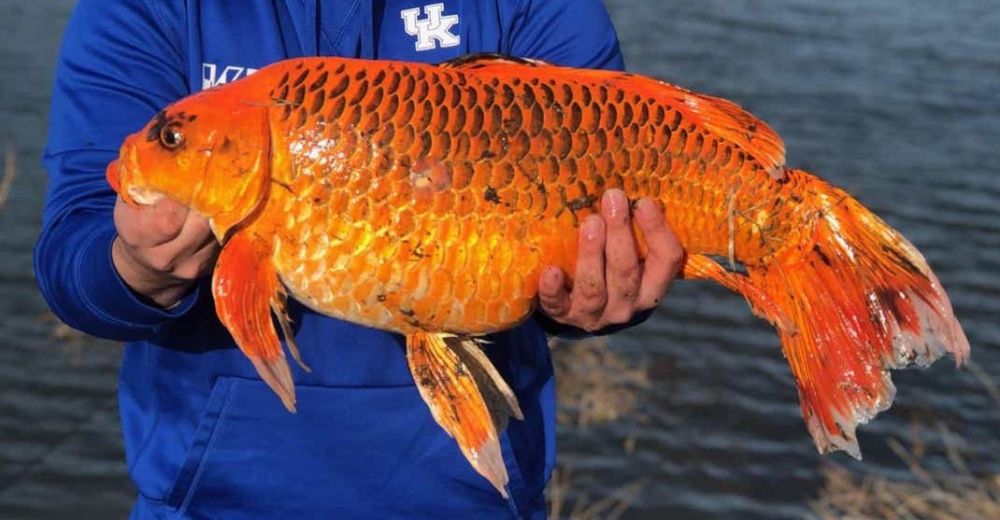
The Goldfish belongs to the Cyprinidae family. This fish can reach 60 cm and live up to 15 years. It breeds in spring for an average of 1000 eggs. In the wild, the species Carassius Auratus or Goldfish has an elongated, laterally compressed and slightly high body. The small triangular head is free of scales and barbells. The dorsal fin, concave or straight, begins at the top of the body and ends at the caudal peduncle. The caudal fin, larger and more indented than that of the Crucian carp, has 17 to 20 soft rays. The ventral and pectoral fins and the anal fin are small and thin. The body is covered with small scales. There are 26 to 31 scales on the lateral line. The colors of the Goldfish vary greatly with the environment in which it evolves, from yellowish to bright golden and bronze. Its back is generally darker and his belly lighter. The main distinctive features of the ornamental shape are its flamboyant red color and its many morphological shapes and aberrations.
The Goldfish is a famous fish you can catch in Little Salkeld.The Sunbleak fish
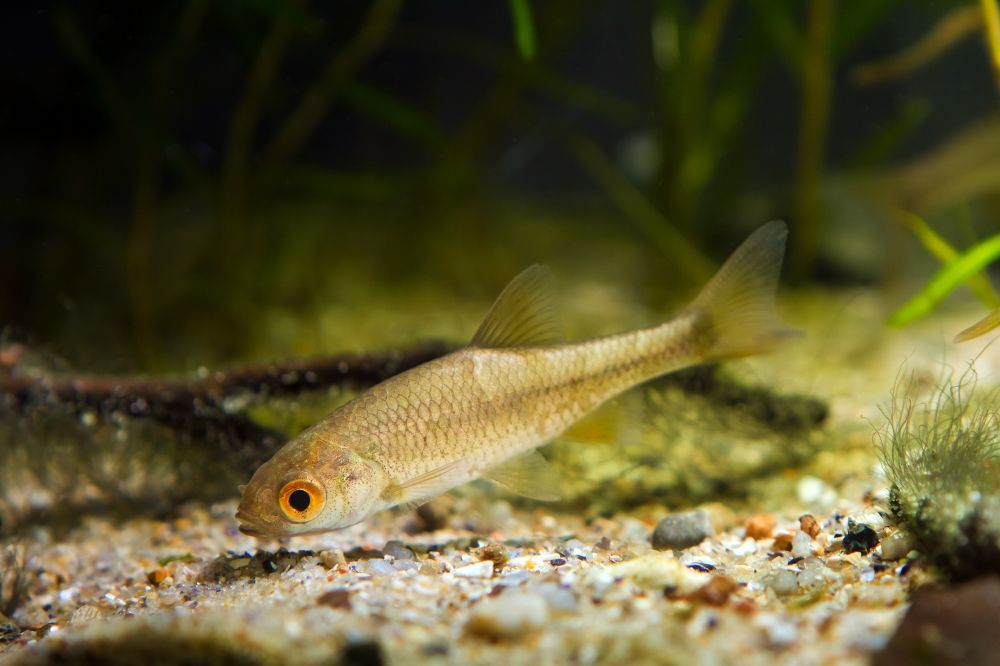
The Sunbleak fish belongs to the Cyprinidae family. The usual size of sunbleak is 4 to 6 cm for a weight of about ten grams. The largest individuals can reach 9 cm. Its lifespan is about 2 years. It breeds between May and July. It is prohibited to fish for the sunbleak in white water from October to March, but in mixed and calm waters it can be fished all year round. The Sunbleak has a tapered, laterally compressed body, like the common bleak with which it is often confused. However, its body is more robust and less high than that of the latter. Its head is small with eyes that are excessively large in relation to the size of the head. Its lower jaw is longer than its upper jaw, giving its mouth a forward and upward orientation, indicating a fish that feeds preferentially on the surface. The caudal fin of sunbleak is particularly indented, its dorsal fin fits well behind the pelvic fin insertions. The sunbleak has an olive-brown back, bluishly reflective sides and a silvery belly. Its fins are light grey.
The Sunbleak fish is a famous fish you can catch in Little Salkeld.The Largemouth black bass
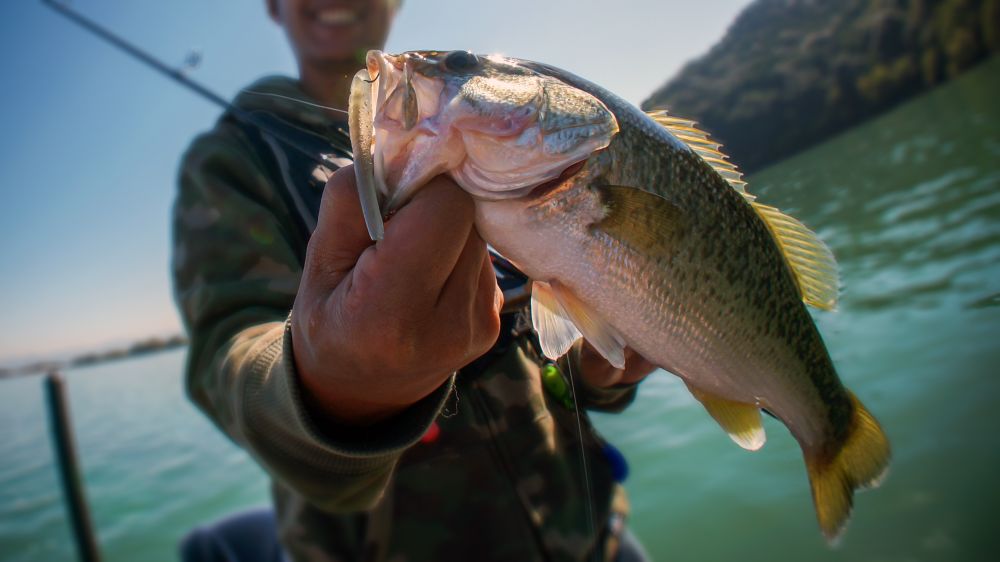
The Largemouth Black bass belongs to the Centrarchidae family. It has an average size of 50 to 70 cm for 4 kg. Its longevity is about 15 years. Spawning occurs from late spring to mid-summer. The number of eggs varies according to the size of the female, from 2000 to 14000 eggs. It is caught from March to October. Large-mouth black bass is a moderately large and robust fish. Its head is strong. Its terminal mouth is large, broad and oblique. The lower jaw is slightly prominent while the upper jaw extends to the back of the eye. The two dorsal fins are almost entirely separated. The first dorsal fin is rather low and has 10 spines. The second dorsal fin with a rounded shape is higher and has an average of 12 rays. Pelvic fins are short, rounded and have 1 spine and 5 soft rays. The pectoral fins are rather short, broad, rounded at the tip and have 13 to 15 rays. The dorsal side of the body varies from bright green to olive. The sides are pale green or golden green. There is a wide, uniform black lateral band that sometimes extends over the operculum and eye to the muzzle. The sides of the head vary from green to olive. The caudal is devoid of bright colors. The ventral side varies from milk white to yellow.
The Largemouth black bass is a famous fish you can catch in Little Salkeld.The Salmon fish
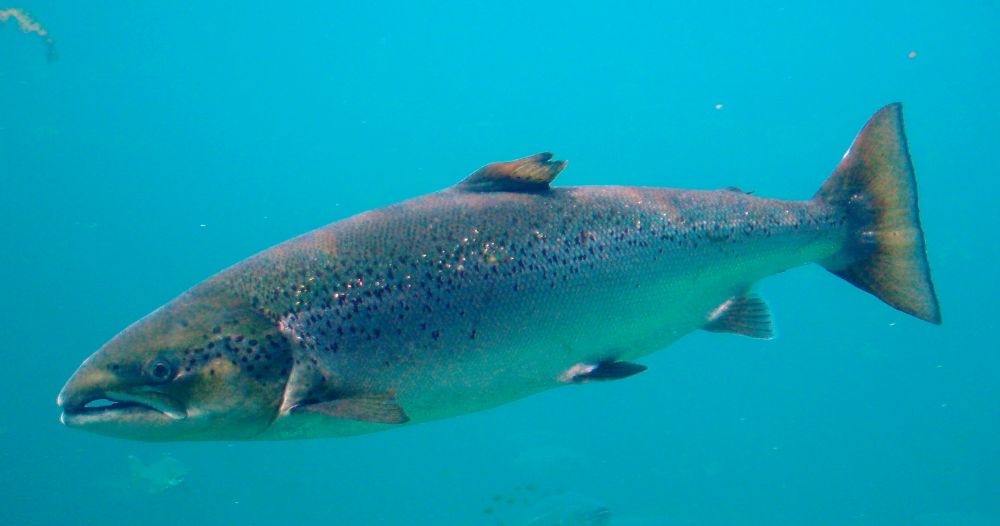
The Salmon fish belongs to the Salmonidae family. It can reach a maximum weight of 47 kg for a height of 1.5 m. The current size of the salmon is 50 to 70 cm, with a weight of 2.3 to 9.1 kg. It can reach a maximum weight of 47 kg for a height of 1.5 m. The current size of the salmon is 50 to 70 cm, with a weight of 2.3 to 9.1 kg. Spawning season is in October-November. Fertility is 1,500 and 1,800 eggs per kg of weight. It is fished in March in October. Salmon have a hydrodynamic and powerful body. The caudal peduncle is elongated and narrower than in trout, with which salmon share many characteristics. The mouth does not extend beyond the plumbing of the posterior edge of the eye. Adults have sexual dimorphism in the muzzle. Females have a rounded snout, while males have an elongated snout and their jaws bend sharply as they age, giving them the name of becard. The caudal fin is fairly indented, with a concave posterior edge and well defined tips. The adipose fin characteristic of Salmonids is present in salmon. The livery is different depending on the reproductive stage of the individual. The parr have 8 to 11 dark-colored vertical bars on the sides. The smolt and the adult have a silvery livery with black cross-shaped punctuation above the lateral line. At the time of reproduction, the male is adorned with bright colors.
The Salmon fish is a famous fish you can catch in Little Salkeld.Our fishing forecast of Little Salkeld indicates the best time to go fishing in this city.
Our fishing forecast of Little Salkeld indicates the best time to go fishing in this city.
Our fishing forecast of Little Salkeld indicates the best time to go fishing in this city.
